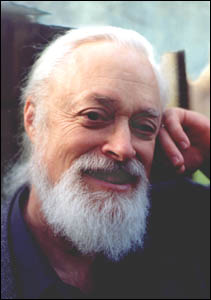
In the below essay, famed Israeli peace activist Uri Avnery, a veteran of both the Irgun and Knesset, a hero of the 1948 War and true Israeli patriot, paints a portrait of Israel's unfolding grand-strategic ruin.
While Israel's penchant for self destruction is self evident in Avnery's exposition, the extent of Israel's insanity becomes stunningly clear when Avnery's exposition is evaluated within the grand strategic framework evolved by the late American strategist Colonel John Boyd [which I have distributed before but am including again as Atch 2 for ease of comparison]. In foreign policy literature, the term of art “grand strategy' is used without explicit definition in vague often pompous sounding contexts. Part of the reason for this intellectual slipperiness, I think, is that the process of defining, or better, evolving a grand strategy is a creative one of synthesis; and the academy is notoriously poor in teaching or explaining synthesis, which is a messy creative process of trial and error conditioned by selection and reevaluation. One of Boyd's most important contributions in his theory of conflict is that he made the idea of grand strategy a precise concept intellectually that can be evaluated and understood analytically, at least after the fact. As you will see in the excercize below, analysis and evaluation is the easy part of grand strategy; the hard part, as Boyd also showed, is putting the pieces together (synthesis) to create a grand strategic course of action directed toward goals that improve a nation's (or any organism, for that matter) fitness to cope with the threats, constraints, and opportunities in its environment.
So, with this in mind, read Avnery's essay carefully, mark its crucial points, and then compare them to the criteria and argument laid out in my own essay, Chuck Spinney: Criteria for a Sensible Grand Strategy. Now ask yourself three questions:
Is Israel on a evolutionary pathway to ruin?
Is our blind obedience to Israel's policies good for Israel or is it reinforcing its pathway to ruin ?
And most importantly, is unquestioning obedience to Israel a sensible grand strategic course of action for the United States?
You will see that to ask these questions is to answer them. The first step in evolving a new course of action is to recognize that a course change is a necessity.
Chuck Spinney
Badalona, Catalunya (which some say is part of Spain)
—————[Atch 1]——————
WEEKEND EDITION OCTOBER 7-9, 2011
How Israel Alienated Germany: The More Enemies, the More Honor?
by URI AVNERY, Counterpunch
AN OLD photo from World War I shows a company of German soldiers getting on the train on their way to the front. On the wall of the car somebody had scribbled: “viel Feind, viel Ehr” (“The more enemies, the more Honor”.)
In those days, at the very start of what was to be the First World War, country after country was declaring war on Germany. The spirit of the graffito reflected the hubris of the supreme commander, Kaiser Wilhelm, who relied on the war plan of the legendary German General Staff. It was indeed an excellent war plan, and as excellent war plans are apt to do, it started going awry right from the beginning.
The foolish Kaiser now has the heirs he deserves. Israel’s Deputy Prime Minister, Moshe Ya’alon, a former army Chief of Staff whose intelligence is below the average even of that rank, has announced that Israel could not possibly apologize to Turkey, even though its national interests may demand it, because it would hurt our “prestige”.
Many enemies, much prestige.
It seems that we shall soon run out of friends whom we can turn into enemies to gather even more prestige.
* * *
LAST WEEK a black cat came between Israel and its second best friend: Germany.




